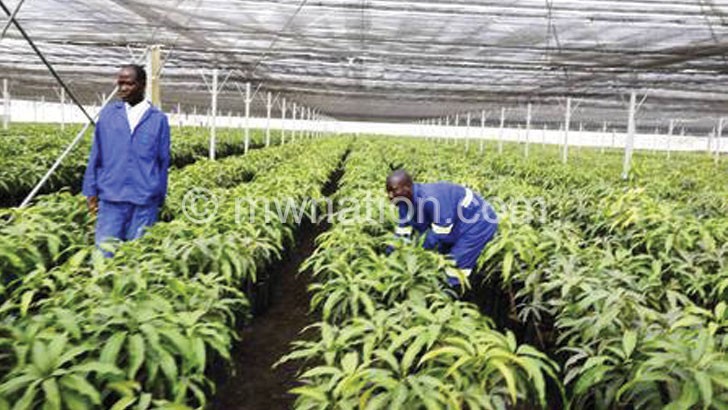Malawi Mangoes deny tax evasion claims
Malawi Mangoes Limited general manager Charlie Leaper has refuted foreign media reports that the company is involved in tax evasion.
An article published by the ForeignPolicy—foreignpolicy.com alleges that Malawi Mangoes, which islocated in Salima, producing and exporting fresh and dry mangoes to India andother European countries has been using Mauritius as a tax haven to avoidpaying taxes in Malawi.

Leaper in an interview with the Weekend Nation described the reports as untrue and that the company is complying with taxation framework in Malawi.
Said Leaper: “The information that was published by Foreign Policy was completely inaccurate. The facts were incorrect and we categorically deny claims they are making.”
He admitted that the company has not made any profits since it started business in 2011 and that it is still surviving on the initial capital investment which is complimented by the low business volumes.
He said: “Major business investment came about in 2013 and we are now entering 2019 we continue to register losses year on year, the focus for us as the management team and the board is to turn the situation around and make it possible that’s why we are taking a strategic direction where we want to make sure that by 2021 we are self-sustainable and at least break even with our investment and be counted as a profit making entity.”
An analysis by Foreign Policy about project disclosures says many of the companies, including Malawi Mangoes, are based in sub-Saharan Africa, and their registration in Mauritius may be depriving African governments, including Malawi of much-needed tax revenue.
Minister of Industry, Trade and Tourism Francis Kasaila, in an interview expressed ignorance of the issue saying responsible government agencies could have traced the malpractice.
“I am not aware of those issues but I can say that we have institutions within the government set-up that are responsible to go and track those proceeds, when they are exporting. The Malawi Revenue Authority [MRA] keeps track records on exports,” said Kasaila
He, however, added that according to law, every investor is allowed a certain amount of money that can be transferred into a parent company.
Kasaila observed that when dealing with foreign investors, not all profits remains in Malawi because shareholders and investor partners who put in some money need their return on investment to facilitate other investment elsewhere.
The International Finance Corporation (IFC) under the World Bank Group approved $5 million investment in Malawi Mangoes in 2014 which was described as an agribusiness project in the soft drink sector, with the loan going to support the company as it tried to establish itself in itself in the country.
The IFC anticipation was that Malawi Mangoes would create much-needed rural jobs by injecting money to the local economy through wages and benefits for economic growth in poorer countries like Malawi.n




